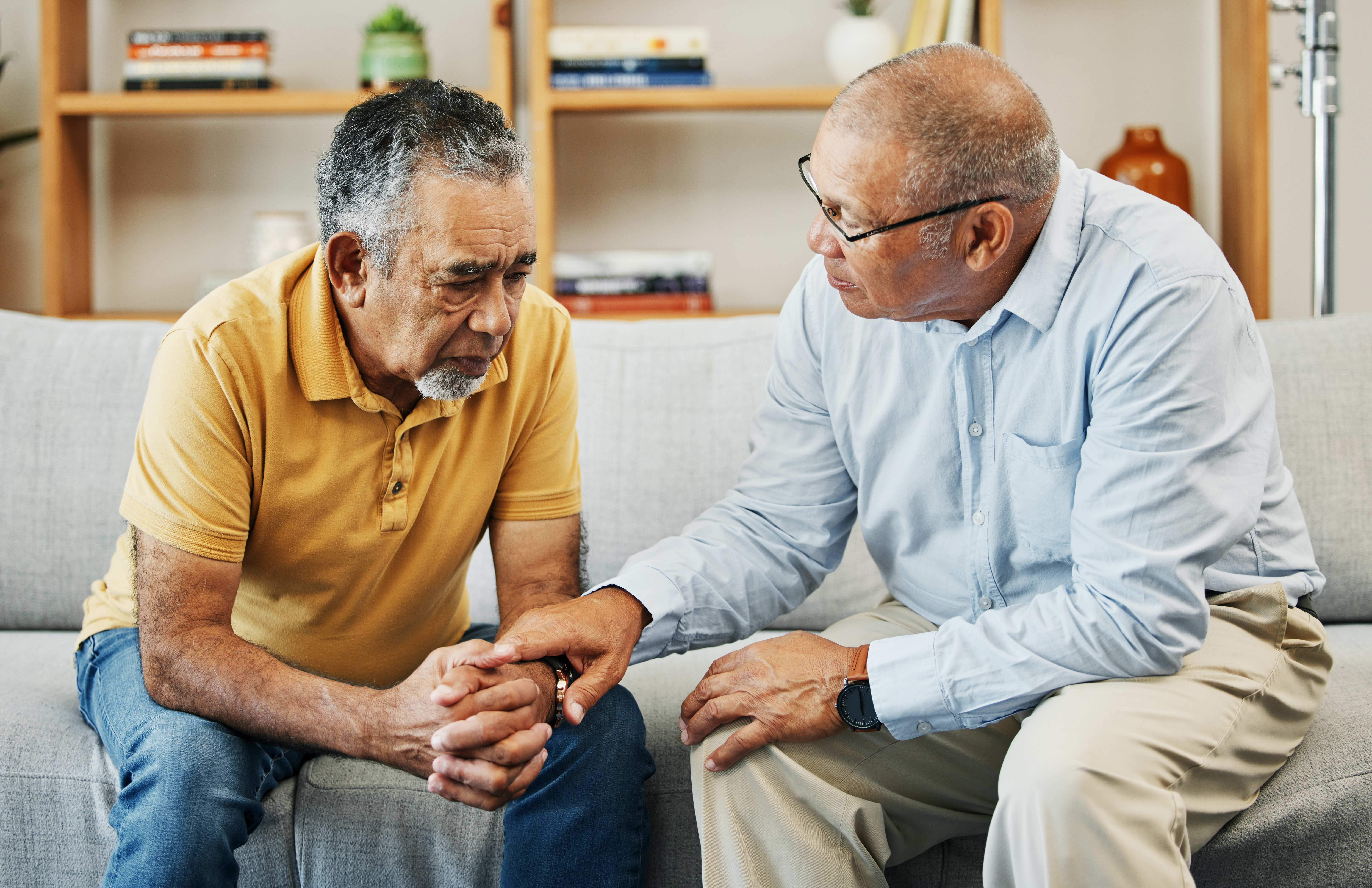
As a caregiver, you may find yourself mourning before your loved one is gone. Whether you’re grieving the changes in your relationship, the loss of the future you hoped for, or the slow, painful progression of illness, that deep, complicated heartache has a name: anticipatory grief.
What is anticipatory grief?
Anticipatory grief is the emotional pain we feel before a loss happens. And it’s common for caregivers and family members of someone with a serious or terminal illness. Imagining what’s ahead, including how much your loved one will suffer or whether they’ll still recognize you, is always hard.
At the same time, you may also mourn what’s already changed since caregiving affects every aspect of your life. From a daily routine that now looks completely different to trouble focusing on work or even other important relationships, it’s normal to miss the life you once enjoyed — and that loss is real.
Unlike grief after death, we don’t always recognize or talk about anticipatory grief. But it’s okay to grieve, even if your loved one is still with you.
How does anticipatory grief feel?
Anticipatory grief doesn’t follow a set path. It can show up in different ways and may change day to day. All these emotions are normal and part of your unique grieving process.
You might feel:
- Anger or resentment toward the situation or changes in your life
- Anxiety about what’s coming and how you’ll cope
- Guilt for wishing the struggle were over or needing a break
- Helplessness, knowing there’s nothing you can do to change the outcome
- Hope and hopelessness, sometimes at the same time
- Numbness or disconnection from your emotions
- Sadness, even during normal days
Why don’t we talk about it?
We often expect grief to begin after someone dies. But when you’re watching someone change or decline every day, your heart is already reacting to the loss in slow motion. In fact, according to the National Institutes of Health (NIH), pre-loss grief can be even more intense than grief after loss.
It’s not always easy for others to understand what you’re going through. You might feel pressure to stay strong, cheerful, or hopeful all the time. While a positive outlook can help, it’s important to make space for all your emotions, including grief. Because that’s how healing starts.
Caring for yourself through anticipatory grief
You can’t stop grief, but you can support yourself through it. Try these tips:
- Accept help: You don’t have to do it all. Even if it’s hard, let others cook, clean, or sit with your loved one while you rest.
- Consider palliative care: These healthcare teams offer medical, emotional, and spiritual support for you and your loved one with a serious illness.
- Create space for small joys: Go for a walk with a friend, listen to your favorite music, sit in the sun, or enjoy a quiet cup of coffee.
- Name what you’re feeling: Identifying your emotions can help you process them.
- Talk to someone: This could be a friend, therapist, or support group.
- Write it out: Journaling or writing letters to your future self can help you make sense of the chaos.
When loss happens
Even after anticipatory grief, death can still come as a shock. You’ve spent so much time caring, waiting, and preparing yourself for what’s next, it’s only natural to feel unsure about what to think or do now.
For many caregivers, relief is one of the first emotions that shows up. But this feeling can be unsettling and is often accompanied by guilt. There may be comfort in knowing your loved one is no longer in pain. The long nights, hospital visits, and difficult decisions are over. You’ve been carrying an enormous weight, and now some of it is lifted.
After a loss, you’ll likely notice your grief change. What once felt like a slow, ongoing sorrow may now become sharper, quieter, or more unpredictable. Let yourself experience it at your own pace, in your own way.
Grieving doesn’t mean giving up
Remember, anticipatory grief doesn’t follow a set timeline or look the same for everyone. And it doesn’t mean you’re losing hope or giving up. Loving someone through illness brings up all sorts of emotions. You’re allowed to hold both hope and sorrow at once.
The bereavement support team at Traditions Health can help you navigate grief before and after loss. We’ll be your shoulder to lean on whenever you need support.